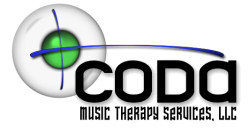 As the new year begins, many people set about making resolutions. On multiple instances, I’ve heard reference to setting S.M.A.R.T. goals. That is, goals that are Specific, Measurable, Attainable, Realistic, and Timely. Not only is this a great way of thinking about resolution goals, but this is an effective technique for setting music therapy goals.
As the new year begins, many people set about making resolutions. On multiple instances, I’ve heard reference to setting S.M.A.R.T. goals. That is, goals that are Specific, Measurable, Attainable, Realistic, and Timely. Not only is this a great way of thinking about resolution goals, but this is an effective technique for setting music therapy goals.
Specific
When drafting music therapy goals, music therapists usually start with a general goal area, but have very specific objectives. For example, a goal may be to improve communication and an objective for that goal is that the client will respond to yes or no questions.
Measurable
Music therapy is an evidence-based practice, meaning we use data to support effective techniques. Therefore, it is important that we are able to collect objective data to determine whether or not a goal has been achieved. To determine if a goal is measurable, we consider whether it answers the questions of “How many?”, “How much?”, “How long?”, and/or “How will I know it is accomplished?” In regards to the previous example, the music therapist may choose to measure the number of times the client responds to a yes or no question, whether or not prompts are given in order for the client to complete the objective, how many prompts are needed, what types of prompts are given, etc.
Attainable & Realistic
I fully believe in maintaining high expectations for my clients and placing absolutely no limitations on what they may achieve. Nothing makes me happier than seeing a client exceed my original goals for him or her! At the same time, it is important to structure a treatment plan with which he or she can be successful. Returning to my example of responding to yes or no questions, it is possible that this could be a goal for quite a few different clients with a wide variety of strengths and deficits. However, while I may be looking for an unprompted verbal response from one client, that same objective may be successfully achieved by another client through a physically prompted response using an Augmentative and Alternative Communication (AAC) device.
Timely
With every treatment plan, it is imperative that there is a specified date for achieving the goal and/or reviewing progress towards the goal. By specifying a deadline, there is an added aspect of accountability and a determined point for evaluating whether the current treatment is acceptable or if treatment objectives need to be reconsidered. Most of my clients are in special education and have an Individualized Education Program (IEP) in place; by law, IEPs must be reviewed annually. However, it is possible that a music therapy goal may need to be reviewed semi-annually, quarterly, and occasionally even monthly if the client is quickly progressing or regressing.
Have you set any S.M.A.R.T. goals for yourself this year? Leave a comment below to tell us about your plan for a successful 2013!

